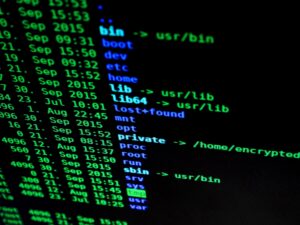Web design refers to the creation of websites that are displayed on the internet. It usually refers to the user experience aspects of website development rather than software development. Web design used to be focused on designing websites for desktop browsers; however, since the mid-2010s, design for mobile and tablet browsers has become ever-increasingly important.
A web designer works on the appearance, layout, and, in some cases, content of a website. Appearance, for instance, relates to the colors, font, and images used. Format refers to how information is structured and categorized. A good web design is easy to use, aesthetically pleasing and suits the user group and brand of the website. Many web pages are designed to focus on simplicity so that no extraneous information and functionality that might distract or confuse users appears. As the keystone of a web designer’s output is a site that wins and fosters the target audience’s trust, removing as many potential points of user frustration as possible is a critical consideration.
A web designer is a graphic artist responsible for designing the layout, usability, and visual appearance of a website. A successful web designer must possess an array of creative, vivid, and technical skills.
Web developers need a combination of graphic design skills and technical computer skills that will allow them to create particular designs on web pages. A web developer is someone who builds and maintains the core structure of a website. They’re tasked with converting the web design into a functional website, using coding languages such as HTML, JavaScript, PHP, and Python.
What Are The Roles Of Web Developers
- To maintain the Website and software application design.
- We use scripting or authoring languages, management tools, content creation tools, applications, and digital media.
- Conferring with teams to resolve conflicts, prioritizing needs, developing content criteria, or choosing solutions.
- Directing or performing Website updates.
- To Develop or validate test routines and schedules to ensure that test cases mimic external interfaces and address all browser and device types.
- Editing, writing, or designing Website content and directing team members who produce content.
- Maintaining an understanding of the latest Web applications and programming practices through education, study, and participation in conferences, workshops, and groups.
- Back up files from Web sites to local directories for recovery.
- Identifying problems uncovered by customer feedback and testing and correcting or referring problems to appropriate personnel for correction.
- Evaluating code to ensure it meets industry standards, is valid, is properly structured, and is compatible with browsers, devices, or operating systems.
- Determining user needs by analyzing technical requirements.
How To Get Started As A Freelance Web Developer
Knowledge base
Sound knowledge of programming languages is a must. While knowing as many languages as possible is essential, keeping oneself abreast with new developments in technology is equally significant as it makes your profile better and your chances of landing lucrative and innovative projects brighter.
One needs to have the expertise and specific experience in the industry. Make sure your profile has impressive credentials. Enrolling in a few courses or subscribing to some good blogs is never a bad idea.
Start networking
And last but not least, network. Network as much as you can. Meet people from the same field, share and discuss ideas. Linkedin is your haven for networking professionally but don’t underestimate Facebook.
Facebook has plenty of groups where people network and post opportunities. An excellent example of this is the several groups on Facebook by ‘Freelancer,’ ‘Freelance Web Developer,’ etc., where clients post requirements and contact information that freelancers can further use to make deals and deliver work.
Create a marketing plan
While skill in your field of expertise is necessary, having a good marketing plan is an equally important thing to do as a freelancer. Having an approach inclined towards making your skills sell and sell to the best possible is extremely important if you wish to be paid handsomely for your hard work.
Beginning with people and places that do not have active websites or any internet presence, like small businesses, NGOs, etc., is a great idea to begin creating a profile for yourself while starting to make profits already.
What Skills Are Required To Become A Freelance Web Developer?
Like any Web Developer, you’ll need all the technical skills required to build websites. The specific programming languages, libraries, and frameworks you’ll use will depend on your specialization, but more on that later.
Web Developers need to be creative problem-solvers as well. They must consider end-users, design elements, accessibility, and client needs. Web Developers also need to stay on top of updates to programming languages and libraries, emerging website platforms, and new requirements for capturing data.
But when it comes to freelance Web Developers, they need to add an entire suite of skills, similar to what Pablo described for us above. Because freelance Web Developers don’t have a company behind them, they’ll need to develop the following skills or hire a professional who specializes in:
- Basic bookkeeping and invoicing
- Proposal writing
- Sales calls and meetings with prospective clients
- Marketing
- Writing professional emails/reports for clients
- Project planning
- Project estimating and budgeting
- Managing cash flow (both for business expenses and personal expenses)
Pros Of Being Self Employed Web Developer
Additionally, freelancing is great because:
- There is a high demand for web developers throughout the world and a short supply of qualified candidates. This means there are many gigs to be had, and you have a little wiggle room in terms of which ones you shoot for.
- It’s never mundane unless you want it to be. Once you get going, you’ll get a constant flow of new projects to work on. You’ll often have more than one project going at once, and you’ll never be stuck in a rut. You’ll also meet many exciting clients, some with crazy ideas and some with more humdrum or practical tasks. The projects you can choose from are as diverse as people in the world. As you build your portfolio, you can decide exactly what kinds of projects you want to specialize in and focus on what interests you most.
- You’re your boss. Ultimately, you choose which clients you’ll take, what hours you’ll work, and how much you’ll get paid. Note each can have limiting factors: For instance, the hours you work may affect which clients you can work with, but ultimately, you get to choose.
- You choose how much you work and how much you play. When you run a home-based freelancing business, if you want to take some time off for your family, as long as you don’t have a client waiting on a project, you don’t need to ask permission. Take a vacation, or take a long weekend. As long as you can pay the bills, you’re free as a bird.
- You have freedom in where you work. This can vary from project to project, but in general, if you have a phone, WiFi, and a laptop, you’re free to go anywhere to get your work done. That means you can work from home, on the road, in a coffee shop, or in a shared workspace. You get to pick where you’re most comfortable and productive.
Five Steps To Become A Freelance Web Developer
-
Find your niche
Want to stand out of the crowd?
Firstly you’ll need to find a web development course and upgrade your skills. Then, find yourself a niche and focus your skills.
While it’s great to be a programmer that can do a bit of everything, your value will be higher as an expert in just a few areas.
It’ll be much easier to advertise your skills and make a name for yourself if you can say you’re the best in a particular, sought-after area or the only one who can do it.
It’s essential to hone your skills and stay on top of current trends. Not sure what’s hot on the market right now? Here are the three most up-and-coming programming languages you’ll find today:
-
Start building anything and everything.
After knowing Your Niche, Now it’s time to build on that. The best place to start your web development and the website you will edit and develop for your career. Your portfolio is a way of displaying your skills and having an easy reference for potential clients. Build your ideas. They are what make you, you! Once you’ve built your portfolio, next, you’ll need things to put in it. This is an opportunity to boost your brand by:
- Practicing your niche skill
- Building your ideas
- Exhibiting your technical chops
-
Create your personal brand
It’s all about the hustle! Getting your name out there as an expert in the field can be challenging, but if you want the freelance lifestyle, you’ll have to hustle for it.
The good news is that there are so many opportunities for professionals to get known without spending a penny.
By showcasing your work, You will find more than enough ways to connect with people and for people to see you. You must talk to people. Online and off.
Always keep in mind that you’ll have to talk to a lot of people to find and land clients, so get used to it!
-
Get organized
To be a freelance web developer it’s not only for knowing how to code. It is all about the head of customer and salesperson. You might not have had much experience in these areas, but they are just as crucial to the success of your freelancing career.
This means you need to get organized.
Use these time and project management tools like Toggl, Google, and Quoteroller to make life easier.
-
Build up your experience, project by project
Now that you’ve got that new, in-demand skill under your belt and a slick website. Freelancer, glassdoor, and freelancer are the best online marketplaces for newbies in the field to start taking on jobs and gaining experience.
Do this while you’re still in your full-time job to get a feel of the amount of time you’ll need and what you can really start to earn per project.
While you’re still finding your feet, experience is what counts. You are still very much in the learning process here: Learning how to be a business person and a freelancer.
Use this step as a chance to learn how to handle clients, to find out what they will expect from you.
Final Thought
A freelance web developer or programmer is someone who takes a web design – which has been created by either a client or a design team – and turns it into a website.
They do this by writing lines and lines of complicated code, using various languages, and translating it into a language that a computer understands, such as Python or HTML. We hope that this article has given you the Perfect Knowledge about Web Development. Happy Programming!
Also, Read Some Interesting Information About What To Look For In A Coding Bootcamp.
How useful was this post?
Click on a star to rate it!
Average rating 0 / 5. Vote count: 0
No votes so far! Be the first to rate this post.




